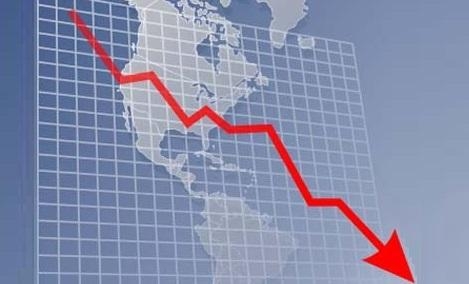Market Data

April 2, 2020
ISM Index Highlights the Negative Impact of the Coronavirus
Written by Sandy Williams
A sharp decline in new orders and production drove the Institute for Supply Management Manufacturing PMI into contraction in March, falling to 49.1 from February’s reading of 50.1 percent.

New orders fell 7.6 points to 42.2 while production dipped 2.6 points to register 47.7. New orders were at the lowest level since 2009. All of the PMI metrics were in contraction except for supplier deliveries at 65 percent, which is an inverted data point. Normally a reading above 50 indicates slower deliveries that are typical of stronger demand, but in March the high reading was due to disruption of the supply chain from the coronavirus.
A separate report released by the Labor Department on Thursday showed that a record 6.6 million Americans applied for unemployment benefits last week, doubling the amount from the previous week.
“The speed and magnitude of the labor market’s decline is unprecedented,” Constance Hunter, chief economist at KPMG LLP told The Wall Street Journal. Hunter projects 20 million jobs will be lost due to the coronavirus impact on the U.S. economy. “We didn’t see this in the global financial crisis. We didn’t see this in the Great Depression. There’s been a total decimation of consumption.”
ISM Survey Comments:
- “COVID-19’s spread in the U.S. may start impacting our domestic business. As for Asian suppliers, they are starting to get back up to speed.” (Fabricated Metal Products)
- “COVID-19 has caused a 30-percent reduction in productivity in our factory.” (Machinery)
- “COVID-19 is impacting China’s raw material supply chain. We are now seeing revenue impact in that region. Our operations team is reviewing plans for spread of the virus.” (Computer & Electronic Products)
- “The two main issues affecting our business [are] COVID-19 and the oil-price war. We are in daily discussions and meeting constantly, updating tracking logs to document high risk concerns.” (Chemical Products)
- “COVID-19 impact has extended to Europe and North America. The virus escalation is affecting our purchasing and logistics operations. We have incurred air-shipment and production interruptions due to shortages of raw materials and components.” (Transportation Equipment)
- “World demand for petroleum products is declining, while supply is ramping up. We have lost supply chain visibility to certain locations.” (Petroleum & Coal Products)
- “A big part of our business is hospitality, and we are seeing demand drop and an increase in cancellations.” (Nonmetallic Mineral Products)
- “All North American manufacturing plants have ceased operations or drastically scaled back as a result of customer plant closings and other responses to COVID-19.” (Plastics & Rubber Products)
- “We are experiencing a record number of orders due to COVID-19.” (Food, Beverage & Tobacco Products)
- “Volumes are down 4.3 percent, and some areas of the supply chain are being affected by the coronavirus.” (Furniture & Related Products)







